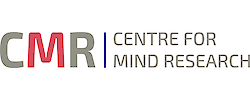Diagnostics
At the beginning of each diagnosis there is a detailed medical anamnesis. Here the current complaints are placed in the context of the previous (disease) course, the current life situation and life development. Your doctor will be happy to inform you about the advanced possibilities of psychological diagnosis.
In diagnostics we follow the following principles:
- The diagnosis of mental illness (e.g. depression, anxiety disorder, schizophrenia) is carried out according to internationally accepted criteria (ICD-10, DSM-V) based on the psycho-pathological findings and the course of the disease.
- At the same time, we know that every patient has a very personal form of mental illness. Therefore, we work according to a holistic concept and emphasize the overall mental-physical and social relationship.
- Behavioral Psychotherapy (KVT, IPT, CBASP) requires accurate prior behavioral analysis: For example, typical problem situations, conflicts, role changes and stressful experiences of the patient are discussed in detail. In special structured interviews, a more comprehensive picture of symptom expression, personality structure and available resources, potentials and possibilities can be gained.
- Sometimes brain functions (e.g. memory, attention, conception, advance planning) are also affected. Then a neuropsychological diagnosis can contribute to the clinical differential diagnosis. For example, malfunctions of the memory function can be objectively recorded with special test procedures. In many patients, the question of cognitive performance is important for assessing their ability to work or to train. If indexed, we perform additional imaging examinations of the brain.
- Together with the patient, a common understanding of the disease and its origin is developed (psychoeducation). In the case of treatment decisions, we attach great importance to the coordination of the disease concept and the therapy plan with the patient (patient-shared decision making).
Physical diagnostics
A) clarification and treatment of physical diseases
Our clinic guarantees a high degree of specialist medical competence also in somatic medicine:
- At the admission each patient receives a detailed physical examination. Clinical-Chemical laboratory tests and an ECG are part of the routine examinations.
- For medical diagnostics the most modern devices are available in the Neurozentrum (e.g. EEG, sonography, Doppler sonography, computer tomography, magnetic resonance tomography).
- Due to the close proximity to practically all medical clinics of the university, necessary additional examinations can be carried out without any problems. Similarly, extensive functional investigations of the brain, such as pet or SPECT, are possible with appropriate indications. Due to these possibilities, we treat many patients who suffer from mental illness as well as physical illnesses.
- Somatic diagnosis and therapy are carried out in coordination with the other clinics of the UKB (consultation, if necessary short-term installation in somatic departments).
b) Safety of drug therapy
Optimization and safety are central concerns for einequalitätsgesteuerte drug therapy:
- In our treatment programs, regular checks of side effects (e.g. ECG controls, clinical-chemical routine laboratory) ensure drug safety in therapy with psychotropic drugs.
- The optimization of the treatment success and the control of side effects is also made possible by regular plasma monitoring (i.e. measurement of the concentration of the pharmacological active substance in the blood) in our own laboratory: the TDM (therapeutic drug monitoring). The metabolism of drugs is subject to large interindividual fluctuations, which may be partly genetic, but also due to physical illness (e.g. limited liver and kidney function) and consumption of nicotine or caffeine. The monitoring of the plasma mirrors allows to avoid individual overdoses (and therefore side effects) as well as underdosages (and thus often a lack of efficacy of the medication). All services under the TDM are subject to strict quality assurance procedures in the laboratory.















